Introduction
In the age of electric vehicles, having a home charging station is more than just a convenience—it’s a smart investment for any homeowner. As the popularity of electric cars surges, understanding the ins and outs of installing a charger at home becomes essential. From evaluating your electrical capacity to navigating local regulations, there are several key factors to consider that can make the process smoother and more efficient.
This article dives into the important aspects of electric car charger installation, including cost considerations, the benefits of having a charger at home, and a step-by-step guide to ensure a successful setup. Whether you’re a seasoned EV owner or just starting to explore the electric vehicle landscape, this comprehensive guide will equip you with the knowledge needed to make informed decisions for your home charging needs.
Key Considerations for Electric Car Charger Installation at Home
Before installing an electric vehicle charging station, consider the following:
- Power Capacity: Ensure your home’s power system can accommodate the additional load. You may need to upgrade your panel or circuit.
- Location: Choose a convenient spot for the device that is easily accessible for your electric vehicle. Proximity to your power panel can also reduce installation costs.
- Permits and Regulations: Check local regulations to determine if you need a permit for installation. Compliance with safety codes is essential.
- Type of Charger: Decide whether a Level 1 charger, which is slower and plugs into a standard outlet, or a Level 2 charger, which provides quicker power delivery and requires a dedicated circuit, suits your needs based on speed and frequency of use.
- Professional Installation vs. DIY: Assess whether you have the skills to install it yourself or if hiring a professional from Powercore Electric Inc. is a better option.
With our expertise in electrical services, including EV station installation, we ensure that your setup is safe and efficient. Additionally, recharging at your residence not only streamlines your routine but also provides considerable cost reductions. Ready to get started? Contact Powercore Electric today to discuss your installation needs!
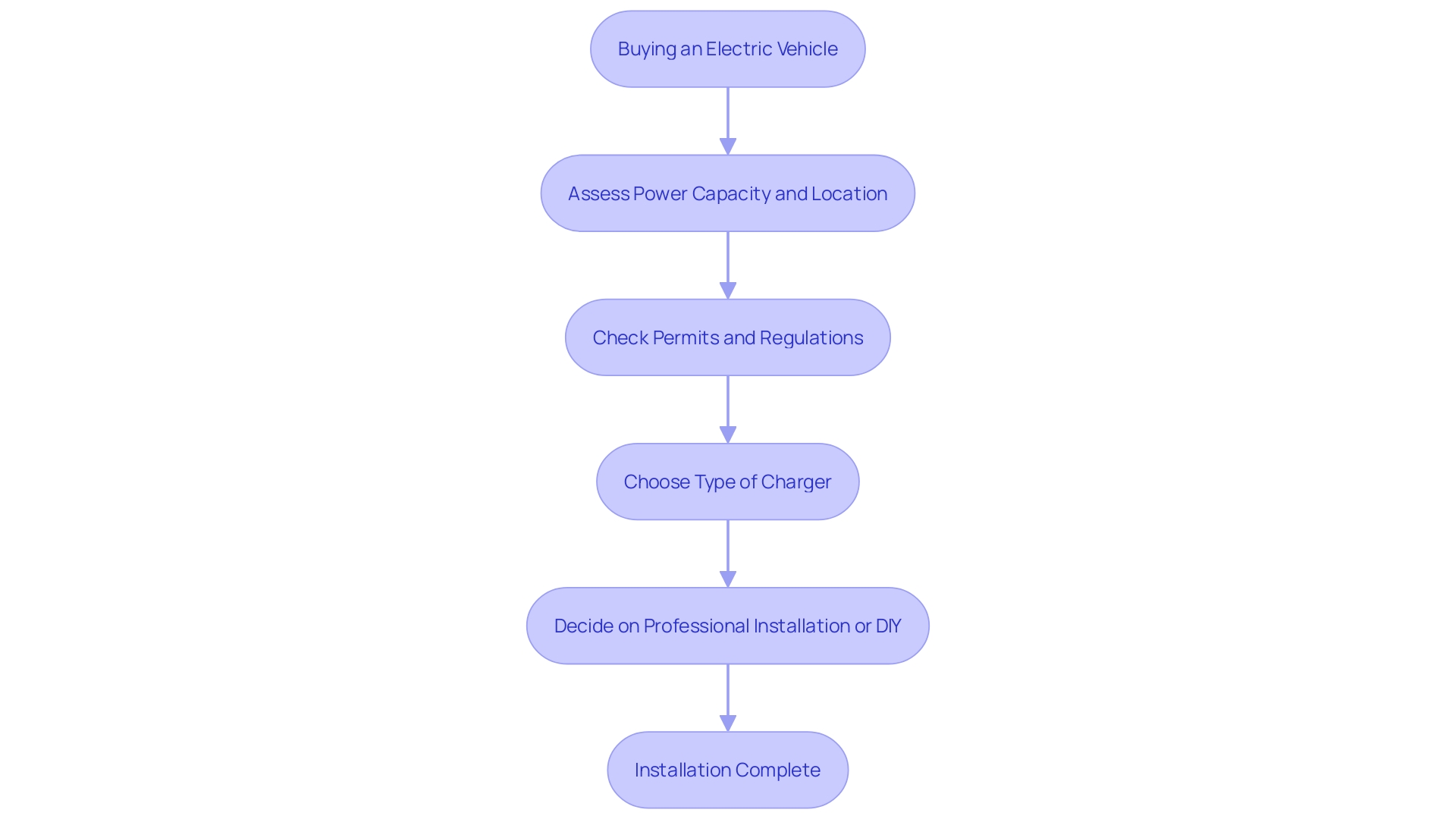
Understanding the Costs of Electric Car Charger Installation
As electric vehicles become more popular, having a reliable charging station at home is essential. However, the expenses related to installing an electric vehicle charging station can vary significantly based on several factors:
- Charger Type: Level 1 chargers typically cost around $300, while Level 2 chargers can range from $500 to $2,000, depending on brand and features.
- Installation Costs: Hiring an electrician, like the friendly team at Powercore Electric, usually costs between $300 and $1,200. This relies on the complexity of the installation and any upgrades your power system may require.
- Permitting Fees: Don’t forget about local regulations! Permits are often required and can add to the overall cost, usually ranging from $50 to $200. These permits ensure that your installation meets safety standards and local codes.
- Additional Electrical Upgrades: If your electrical panel needs an upgrade, costs can escalate to $1,500 or more. It’s wise to budget for these potential expenses, as they can significantly affect the overall project cost.
For expert guidance and comprehensive support, including solar panels, battery backups, and EV charging stations, contact Powercore Electric today! We’re here to assist you in attaining efficiency and reliability in your residence.
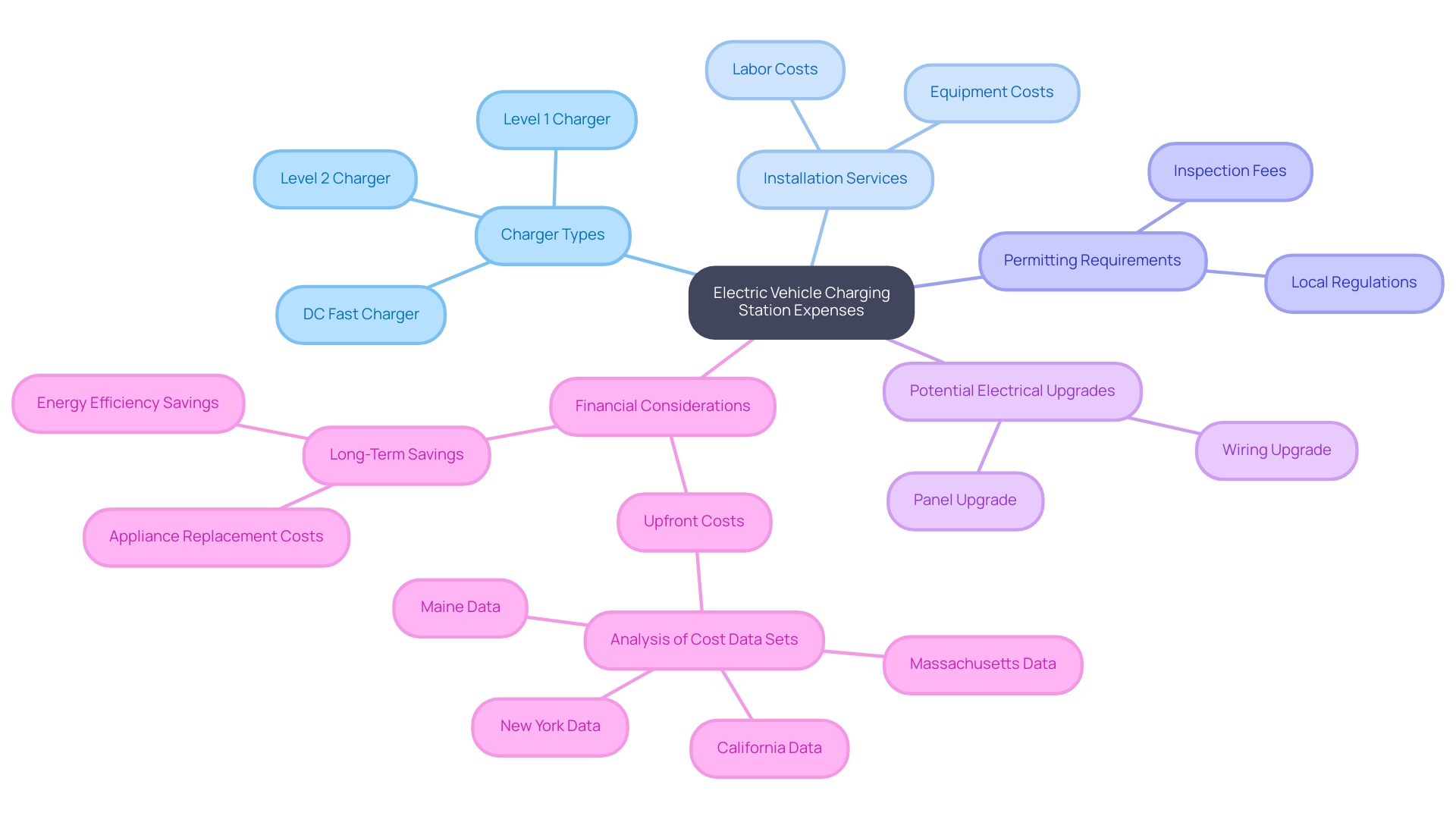
Benefits of Installing an Electric Car Charger at Home
Installing an electric vehicle charging station at home offers numerous benefits:
- Convenience: Recharge your vehicle overnight and begin each day with a full battery, eliminating trips to public power stations.
- Cost Savings: Home refueling is often cheaper than using public stations, especially with time-of-use electricity rates, potentially saving you up to 50% on expenses.
- Enhanced Property Worth: A residence fitted with a power supply station can be more appealing to environmentally aware purchasers, possibly boosting resale value by 4-5%.
- Environmental Impact: By operating an electric vehicle and recharging at your residence, you aid in decreasing carbon emissions and fostering sustainability, as electric vehicles can lower greenhouse gas emissions by up to 50% in comparison to conventional gasoline cars.
- Time Efficiency: Replenishing energy at residence conserves time in contrast to halting at power stations, facilitating a more organized daily routine.
At Powercore Electric, we utilize our local knowledge and dedication to unparalleled quality workmanship to guarantee your installation of the station is smooth and effective.
Furthermore, as part of the surge in solar-powered EV charging stations across Los Angeles, integrating solar panels with your home charging station can significantly enhance your energy savings, allowing you to charge your EV with clean energy while reducing your overall electricity costs.
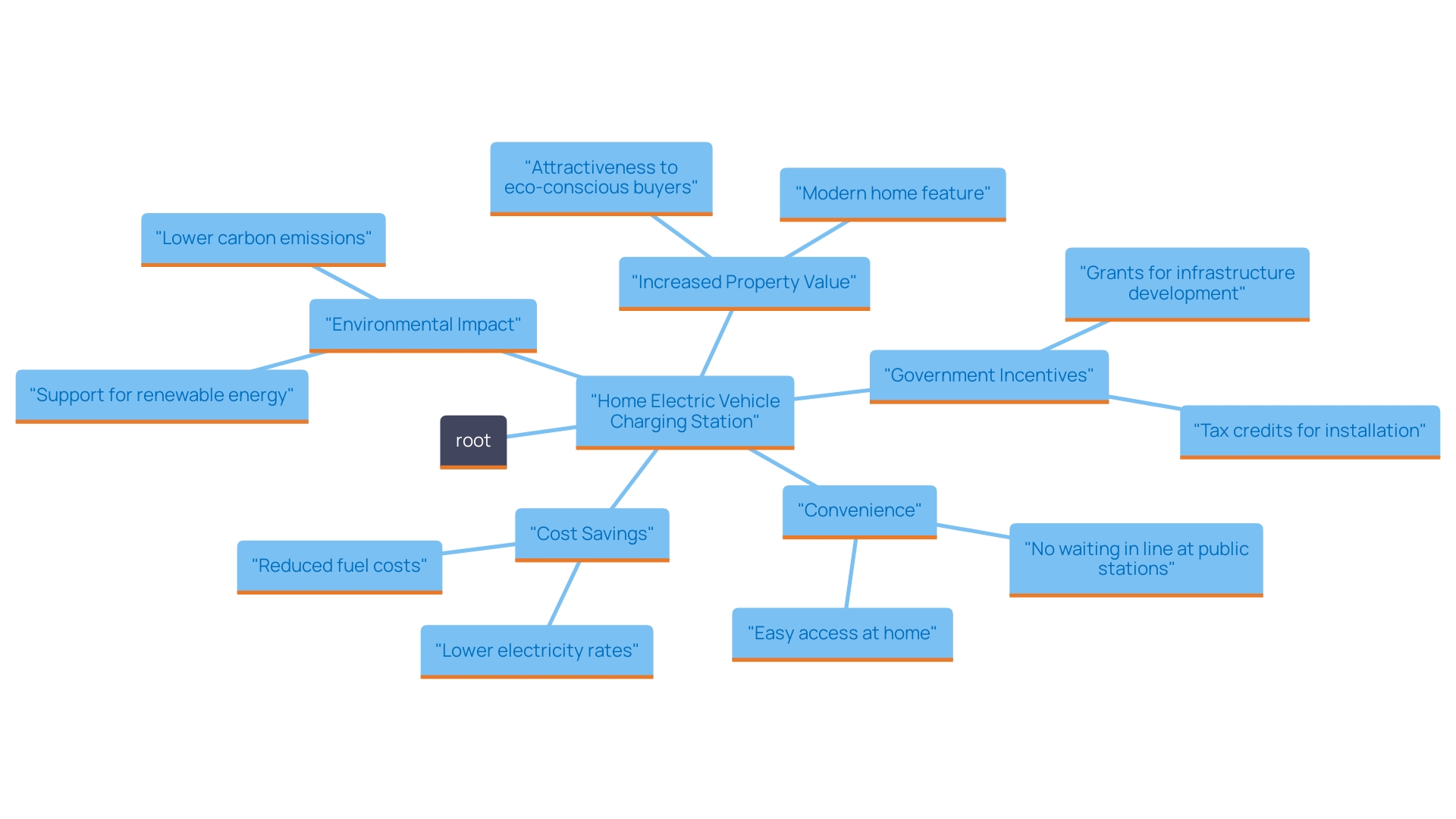
Step-by-Step Guide to Installing Your Electric Car Charger
Follow these steps to install your electric car charger with Powercore Electric’s expert guidance:
- Select the Charger Location: Choose a spot that is near your vehicle’s parking area and your power panel, ensuring easy access.
- Turn Off Power: Before beginning any work, turn off the power to your power panel to ensure safety.
- Site Evaluation: Our team performs a comprehensive review of your property to identify the optimal spot for the power station and assess any energy needs.
- Power Upgrades: If necessary, we may need to enhance or modify your current infrastructure to accommodate the charging station, adhering to local safety and regulatory standards.
- Mount the Device: Securely attach the device on the wall, following the manufacturer’s guidelines. Use a level to ensure it is straight.
- Install Wiring: If needed, install wiring from your panel to the charging point, ensuring the wiring is rated for the device’s requirements.
- Connect the Power Supply: Connect the power supply to the electrical source, ensuring proper grounding and compliance with local codes.
- Testing and Commissioning: Once everything is connected, we rigorously test the device to ensure it operates correctly, checking for any error messages or issues.
- Final Adjustments: Make any final adjustments as needed, ensuring the installation is safe and compliant with regulations.
Ready to make the switch to electric vehicles? Contact Powercore Electric today to learn more about our EV charging solutions and how we can help you embrace a cleaner, more sustainable future.
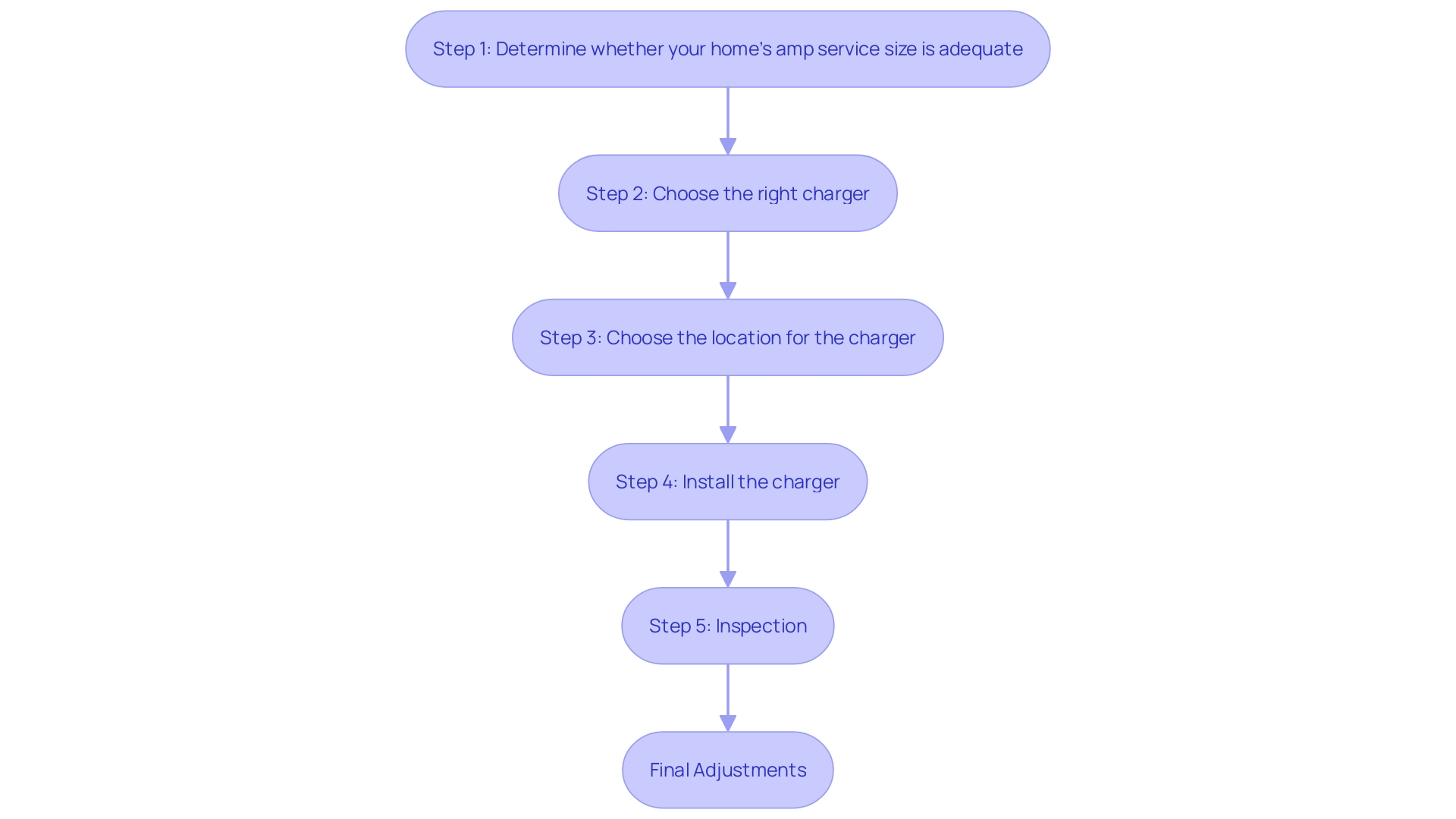
Choosing the Right Electric Car Charger for Your Home
When choosing an electric car charger, consider the following:
- Charger Type: Choose between Level 1 (120V) and Level 2 (240V) devices. Level 2 devices are quicker and more appropriate for everyday use, making them a wonderful enhancement to your home power setup.
- Smart Features: Some devices provide Wi-Fi connectivity, enabling you to monitor and control the power supply through a smartphone app. This feature can optimize your charging based on your schedule and energy rates.
- Compatibility: Ensure the power supply is compatible with your specific electric vehicle make and model, especially if you have a sleek Tesla or other electric vehicles.
- Portability: If you plan to travel with your device, consider a portable option that can be easily moved and plugged in at different locations, providing convenience wherever you go.
- Warranty and Support: Look for chargers that come with a good warranty and customer support, ensuring you have assistance in case of issues.
At Powercore Electric, we specialize in installing dependable EV recharging stations tailored to your needs. We comprehend that incorporating solar energy solutions can improve your power experience and save you money in the long term. With our expertise in solar panels, battery backups, and general electrical services, you can trust us to provide comprehensive support for your energy solutions. Ready to optimize your electric car charging experience? Contact us today to learn more about how we can help you harness the power of solar energy and make your home more eco-friendly!
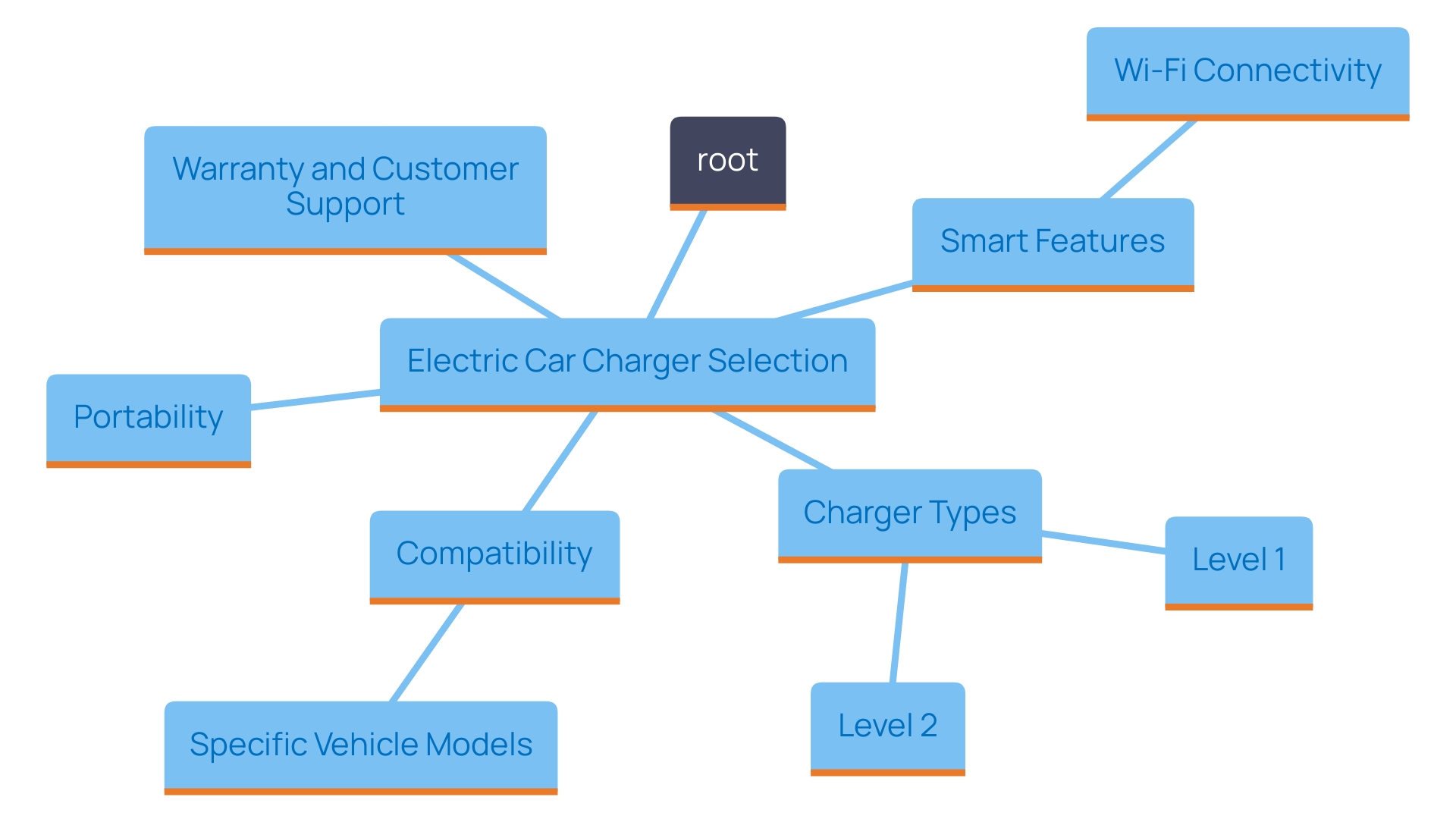
Conclusion
Installing an electric car charger at home is not just a step towards convenience; it’s a smart financial and environmental investment. By considering key factors such as electrical capacity, charger type, and local regulations, homeowners can ensure a smooth installation process. The detailed breakdown of costs associated with different charger types and installation methods highlights the importance of budgeting for this project, as it can vary widely based on individual circumstances.
The benefits of having a home charging station are compelling—ranging from the convenience of overnight charging to significant cost savings compared to public chargers. Additionally, enhancing property value and contributing to environmental sustainability further solidifies the case for installation. With the guidance provided, tackling the installation process can feel less daunting, making it easier to embrace the electric vehicle revolution.
Ultimately, the transition to electric vehicles is not just about adopting new technology; it’s about making informed choices that benefit both the household and the planet. By equipping homes with electric car chargers, homeowners can enjoy a more efficient, cost-effective, and sustainable lifestyle. As the demand for electric vehicles continues to grow, now is the perfect time to take action and invest in a home charging solution that meets personal needs and promotes a greener future.
